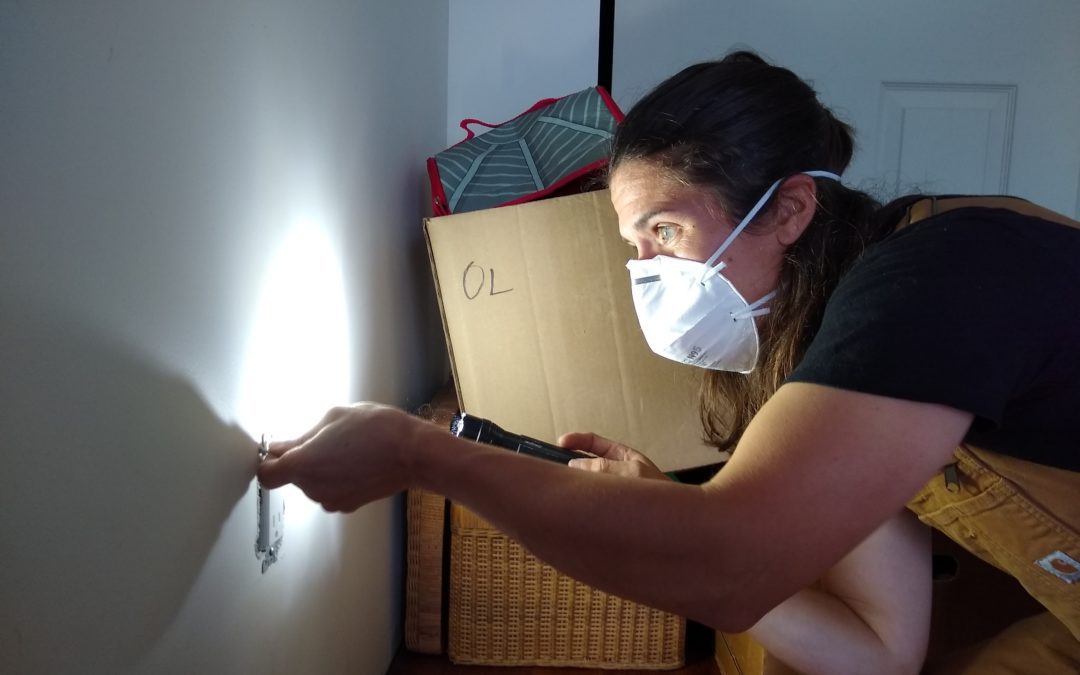An energy audit improves your home’s energy efficiency by identifying appropriate retrofits and renovations. A professional energy evaluation also benefits you by helping to save energy and money, while making your home more comfortable. Here’s how:
1. It provides a better understanding of the impact that energy usage has on finances and home comfort
When a certified Energy Advisor conducts an evaluation, they analyze all areas and elements of the house that affect its energy performance. The analysis identifies issues like air leaks and drafts through walls, windows and doors; poor insulation; and inefficient heating/ cooling systems. The inspection will also help identify ways to address problems such as dampness, and mould/mold or mildew in your home which can lead to potential health hazards.
A few things the Energy Advisor will analyze include:
- The level of airtightness in the home.
- The quality of insulation in the building envelope (i.e., walls, attics, windows, doors, and the foundations).
- The number, types, and location of windows and doors.
- The size and efficiency ratings of heating, cooling, and water heating equipment.
The data from the analysis is entered into a software developed by NRCan (Natural Resources Canada) which then calculates your home’s EnerGuide rating. After the audit is complete, the Energy Advisor gives an EnerGuide Rating System label for your home. This includes a numerical estimate of the net amount of energy your house consumes each year.
Most importantly, the Energy Advisor provides you with detailed recommendations of potential renovations and retrofits that will help you save energy and money, make your home more resilient, and create a healthier and more comfortable home environment.
2. It gives evidence-based recommendations on how to improve your home’s energy efficiency
Upon completion of the home inspection, the Energy Advisor will provide you with an EnerGuide Renovation Upgrade Report. This report will include a list of recommended upgrades and retrofits, detailed comments from the Energy Advisor, and additional tips on how to improve the energy efficiency your home.
Some possible recommendations include:
- Increasing insulation in walls, ceilings, attics, and basements.
- Draft-proofing throughout the home, especially around doors and windows.
- Upgrading heating and cooling systems, and water heating equipment.
- Fixing leaks that result in mold-causing moisture to enter the home.
- Replacing old appliances.
- Upgrading fixtures to those certified with an Energy Star Label.
These recommendations are based on data collected during the home audit and will provide you with information on how to improve your home’s energy efficiency. Completing the recommended retrofits will improve your home’s overall EnerGuide rating, thereby lowering your energy-related expenses and making your home more comfortable.
3. It allows access to multiple energy-related rebate and grant programs
Completing a pre-retrofit home evaluation, installing recommended retrofits, and doing a post-retrofit home evaluation can make you eligible for various government rebates and grants like the Canada Greener Homes Grant.
The grant provides you with incentives up to $5,600 for energy efficiency upgrades. You can be reimbursed up to $600 for the Energy Advisor’s services and up to $5,000 for completing eligible retrofits.
Green Communities Canada’s NRCan-certified Energy Advisors will also help you submit your Canada Greener Homes Grant application to claim your rebate. Our support will ensure that the process of retrofitting your home can be done for little to no money out of your own pocket!
Visit our website to get an energy evaluation and reap the benefits of the Canada Greener Homes Grant today.

Trackbacks/Pingbacks